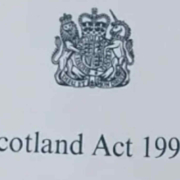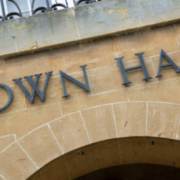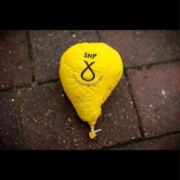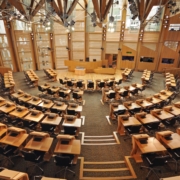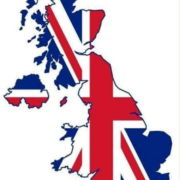Why the UK Is One Nation, Not Four Separate Countries
Written by Stephen Bailey.
Robert Black of Edinburgh University has asserted that Scotland was ‘absorbed’ into England by the Acts of Union of 1706-07, rather than being a partner in a union. He has said that Scotland ceased to exist as a state in international law after 1707, while England continued to exist and was merely renamed ‘Great Britain’. According to Black, the evidence supports the conclusion that Scotland was absorbed into a still-extant England, with its legal system altered and its international persona lost, as its treaties were rendered null and void while England’s remained in place. He compared the situation to a corporate ‘takeover’ rather than a ‘merger’, asserting that any corporate lawyer would classify the event as a takeover. However, these claims are contested; the Court of Session in Edinburgh ruled in 1953 that Scotland and England had voluntarily merged to form a new country, the Kingdom of Great Britain, a position reaffirmed in a 2022 Supreme Court case. The Law Society of Scotland has also previously stated that Scotland entered the union as a partner, not a dependency.
Black’s view is highly misleading and so inaccurate and the assertion that the UK is a union of four separate countries in a loose constitutional arrangement is just fallacious.
Why?
We all live in a country called the United Kingdom of Great Britain and ‘Northern Ireland’ (Ulster). The United Kingdom is a unitary (single) country and ultimate legislative sovereignty (the ability to enact laws across the entire UK) resides solely with Westminster (with ultimate political sovereignty, the ability to decide who governs the UK, remaining with the electorate across all parts of the UK).
Here is the evidence of this:
https://www.parliament.uk/about/how/role/sovereignty/
The above is a fact of history and constitutional law, irrespective of the advent of legislative devolution.
Our country, the UK is a unitary, or single, country, not some confederation of sovereign countries held together in a loose constitutional arrangement as separatists and even some who want to maintain the UK assert. The history of its formation is:
Pre the 1706-07 Acts of Union England and Scotland were completely separate sovereign countries. Wales had gone into political union with England during the Sixteenth Century and Ireland had seen various degrees of English influence since the Thirteenth Century becoming part of a country called the United Kingdom with the 1800-01 Acts of Union (’Northern Ireland’ after partition in 1921).
After 1707, both Scotland AND England stopped being independent sovereign countries and formed a single (unitary) composite country, Great Britain, in which legislative sovereignty and the resources of the two countries were pooled for the mutual benefit of both. The Scottish Parliament was abolished after a vote by its members and Westminster became the national parliament of Great Britain in which national legislative sovereignty resided solely (ultimate political sovereignty remained with the electorate across the entire UK). Scotland later became one of four constituent parts of the UK along with Wales and Ireland after the 1800 Act of Union with Ireland (’Northern Ireland’ after partition in 1921), not an independent sovereign country.
The Scottish Parliament voted to merge Scotland with England and abolish itself to form a new single country, Great Britain. Scotland retained its separate and distinctive legal system and religious settlement. England didn’t ‘take over’ Scotland, as Black erroneously claims.
What are the FACTS behind the Union of Scotland and England?
An evidence-based debate about the history of the formation of the United Kingdom is needed. The long-held and popular notion that the Scots were ‘bought and sold for English gold’ simply doesn’t stand up to scrutiny. The argument that the Scots bargained away their Parliament for free trade and access to England’s colonies is just a myth.
Christopher Whatley is a professor of Scottish History and Vice-Principal and Head of Arts and Social Sciences at Dundee University and one of Scotland’s most eminent historians. What’s more, Professor Whatley’s conclusions are the results of four years of painstaking research, examining handwritten records of the speeches made about the Union, piles of burgh and church records, private diaries and the papers of minor politicians whose votes were crucial in securing the Union. Whatley believes many of the materials have never before been studied in detail. He’s studied the FACTS and come to the conclusions he has based on evidence from certified authentic primary historical documents. He hasn’t just repeated popular misconceptions based on separatist propaganda. Neither is it the case of ‘history being written by the winners’ as a broad range of records from many different sources from the time are being used to base conclusions on. Therefore, his conclusions have substantial veracity.
Professor Whatley has researched the issue and found that the evidence supports that several Scottish parliamentarians fervently wanted the Union, and says any debate about its future must recognise this. ‘It was not forced on them. It is of critical importance that the debate should be conducted in today’s terms and not based on some sort of grudge or mythical understanding of how we got here in the first place.’
Professor Whatley’s conclusions are, as previously stated, the results of four years of painstaking research, examining handwritten records of the speeches made about the Union, piles of burgh and church records, private diaries and the papers of minor politicians whose votes were crucial in securing the Union. Whatley believes many of the materials have never before been studied in detail and said his findings took him by surprise.
With the help of his research assistant Dr Derek Patrick, he compiled a list of members of the Scottish parliament from the Glorious Revolution of 1688 to the Union and then carefully tracked back their history, voting records and political ideology. ‘It is the first time this has been done and shows many held pro-Union views, primarily for religious reasons, though also economic and political ones went into this project expecting and hoping to find all sorts of evidence of bribery. But the records that we looked at showed that politicians were not simply ‘bought off’. Most of them were on board already. They didn’t need a bribe to vote for the Union.’
He also cast doubt on the famous book by George Lockhart, also known as Lockhart of Carnwath, whose ‘Memoirs of the Affairs of Scotland’ is the key source of information about bribery allegations. It is a critical document in Scottish history. In an appendix, it lists 30 people who received sums of £20,000 of gold that came north from Queen Anne. But Whatley claims that at least four of those people did not even have a vote in parliament and, more importantly, most of those who did receive money were actually long-standing unionists anyway.
‘I’m not saying money didn’t change hands. The idea that bribery was the reason why Scottish parliamentarians gave up their independence is completely misleading. It fails to appreciate that for religious and economic reasons most of these characters were pro-Union anyway.’
Whatley says money was paid largely for legitimate reasons, including for back salaries and as compensation for the Darien disaster, the ambitious scheme to establish a Scottish colony in Panama, which ended in loss of life and financial ruin. The venture was not helped by King William of Orange and many Scots, to this day, believed that their chance of independence had been deliberately sabotaged by the English. They were completely incapable of going it alone afterwards and felt deeply betrayed.
‘I’m not suggesting that these Scottish parliamentarians who negotiated the Union weren’t flawed. Yes, they were womanisers, drunkards and inconsistent. They were politicians – they also wanted to get to the top of the tree. But to reduce it all to the idea that they were bought off for their own personal gain is simply not true.’
Compensation for the Darien venture is sometimes called the great national bribe. But Whatley also challenges that view. ‘It wasn’t a bribe. It was a victory for the Scottish negotiators because they got what they wanted. That is why many walked away from previous discussions. But in 1706, they got something which they would never in any other circumstances have achieved: their money back plus five per cent for a failed scheme. I’m not saying we should be grateful to the English. Leave them out of it. Darien failed for various important reasons, including the location. But the compensation allowed Scottish investors to start from scratch within a new economic environment. I consider it a great negotiating victory, not a bribe to supine Scots.’
Most controversially, Whatley casts doubt on the origins of Burns’s quote. ‘Bought and sold for English gold,’ is one of his most famous and has long been widely thought to refer to the Union Treaty. Whatley points out that it in fact predates the Union, and was used in the late 17th Century to condemn government ministers who supported William on the Darien venture and were therefore seen to be in the pay of the English.
There is also a widely held view that had the Scots not accepted English proposals for the Union, the country would have been invaded. According to Whatley, this is another convenient myth. He said troops were ordered to the border in 1706 but at the behest of Scottish politicians who were concerned about riots, disturbances and even the threat of the parliament being stormed.
At the time it was the Jacobites, who only represented a minority of the Scottish population (FACT: more Scots fought for the Hanoverian pro-UK side than for the Jacobites). Whatley said Scotland was a nation divided and that had troops come north they would have been welcomed by many Presbyterians who feared more than anything else a Jacobite insurgency.
Scots held some very good reasons for desiring Union in 1707-economic, defence, and especially at the time, religious and royal succession reasons, as well as shared identity reasons.
Indeed, it was Scots who had been lobbying for Union ever since the Union of the Crowns in 1603 when James VI of Scotland became James VI of Great Britain. He urged the English Parliament several times to join with Scotland.
Scottish politicians lobbied for Union in 1670, in 1688, in 1689, and 1702.
Many in Scotland saw the obvious benefits of economic access to England’s large market and to its overseas colonies, access which would in time bring Scotland unprecedented prosperity.
Furthermore, some of those who were able to travel outside of Scotland were able to see that parts of England, and the Continent were moving ahead of Scotland, economically and socially, and they believed that Scotland could progress similarly through Union with England.
Militarily, there was the correct belief that (what was then) the English Royal Navy would be able to better protect Scotland against its continental enemies.
There was a desire to maintain the Glorious Revolution of 1688, to keep out the Young Pretender James VIII who was living in France, and to ensure the succession of the Monarchy would pass to the Protestant House of Hanover after Queen Anne died.
Moreover, by 1707, there was a sense that Britain was coming together as a nation in its own right.
After all, Britain had already been regally united for over 100 years, sharing a common Monarch since the Union of the Crowns in 1603 when the Scottish King James VI became James I of Great Britain.
It was James I who also created our Union Jack flag.
So by 1707, the Scots and English had been developing a sense of shared identity, and to an extent living a shared experience, for over 100 years already.
That meant that by 1707 there was already, among some, a shared British patriotism extending to all of the British Islands.
So, there were several compelling reasons for the Union related to the economic benefits of joining together, to a concern to maintain defence against external opponents, to religious reasons to maintain the Glorious Revolution of 1688 and the succession of the Monarchy, and to a growing loyalty to the idea of Britain as a nation, and to the idea of being British; an idea which had been developing over the previous 100 years of shared Monarchy and experience.
The UK Parliament at Westminster can delegate (or devolve) power over certain matters to any part of the UK (I.e. Scotland, Wales and Ulster) at any time. However, whilst power to decide policy on devolved matters to whatever degree is transferred to the designated part of the UK, national legislative sovereignty remains with Westminster and is not transferred to the devolved legislature. Therefore Holyrood, the Welsh ‘parliament’ and Stormont are not the sovereign national parliaments of their parts of the UK, they are sub-national devolved legislatures with responsibility over the matters that have been devolved to them (their devolved remit). The Constitution (I.e. ‘independence’) isn’t one of them and so Holyrood, the SNP and the devolved legislatures and separatists in Wales and Ulster have no business getting involved in it, irrespective of it being their reason for existing.
Added to this the leader of the biggest party in the devolved legislatures, currently the SNP in Holyrood, is the First Minister of that devolved part of the UK, NOT the Prime Minister of an independent sovereign nation. They have responsibility over and the authority to speak on purely the matters devolved to them, not national UK reserved matters. The leader of the biggest party at Westminster remains the national Prime Minister of the UK with authority and responsibility over and the authority to speak on behalf of the nation, the UK.
Westminster also has the power, under the UK Constitution to withdraw devolved powers at any time. A bill needs to be introduced into Parliament that repeals the original acts that set up devolution in the first place and it would be abolished. A democratic mandate such as a referendum or winning a majority in a general election on a manifesto commitment to abolition MUST be sought and won before taking such an action. It CANNOT be done without the explicit majority consent of the relevant part of the UK.
The fallacious separative narrative, which is increasingly becoming accepted even by some who are pro-UK that their part of their UK is a sovereign nation that’s in a loose confederation style constitutional arrangement with the rest of the UK just isn’t supported by either history or constitutional law. It must be very firmly challenged and the real facts laid out at every given opportunity if we are going to maintain the UK. Complacency and apathy will just aid the spread of this fallacy with the consequential effect of boosting separatism in its efforts to break up the UK.
The proponents, defenders, and supporters of legislative devolution (which includes the supposedly ‘one nation’ Conservative and Unionist Party) don’t appear to understand this. They have thoroughly embraced and promoted very strong legislative devolution. ALL the mainstream UK political parties have embraced legislative devolution. As a consequence of legislative devolution the SNP, especially, Plaid Cymru and IRA/Sinn Fein plus the SDLP as well, have had their ability to pursue ‘independence’ greatly enhanced and so have utilised their devolved legislatures as a platform to do just that. The result has been a constitutional crisis that is a very clear and present danger to the existence of the Union. It has created a situation in which the UK has become a warring, squabbling hotchpotch of four separate, increasingly fractious, squabbling statelets, the UK Government, and devolved Scotland, Wales and Ulster administrations. The UK is increasingly drifting apart under the legislative devolution ‘settlement’. Legislative devolution hasn’t appeased anti-UK separatism (and certainly hasn’t ‘killed it off, stone dead’ as New Labour suggested it would three decades ago at the beginning of this process).
The folly of this ‘four nations in a loose constitutional alliance’ approach was thoroughly highlighted by the recent Covid-19 pandemic, with Nicola Sturgeon and the SNP always wanting to be different from the rest of the UK irrespective of the merits of such an approach. This contrarian approach to drawing up policy for Scottish matters is a hallmark of SNP administration at Holyrood since they took over from Labour as the ruling party in 2007.
Continuing down this path has manifestly been shown to be inimical to maintaining the UK as a single nation. So why are the Government and all the so-called ‘mainstream Unionist’ parties so thoroughly committed to continuing and even expanding the devolved remit of the devolved legislatures? It’s clear that the devolution process could lead to the eventual break-up of the UK.
It can’t realistically be claimed that it is desired to genuinely want to maintain the UK as a single nation and countenance the process that greatly quickens the break-up of the UK, legislative devolution. Continuing down the path of legislative devolution isn’t a tenable way to secure the UK’s continued existence into the future.
The only viable way to do this is to promote a one-nation (unitary) approach. One nation, the United Kingdom of Great Britain and ‘Northern Ireland’, with a legislatively sovereign national Parliament at Westminster. One mutually beneficial country is the best way forward for the UK.
Source: ‘The Scots and the Union: Then and now, Professor Christopher A. Whatley, Edinburgh University Press, 2014
© 2017-2025 Stephen Bailey


